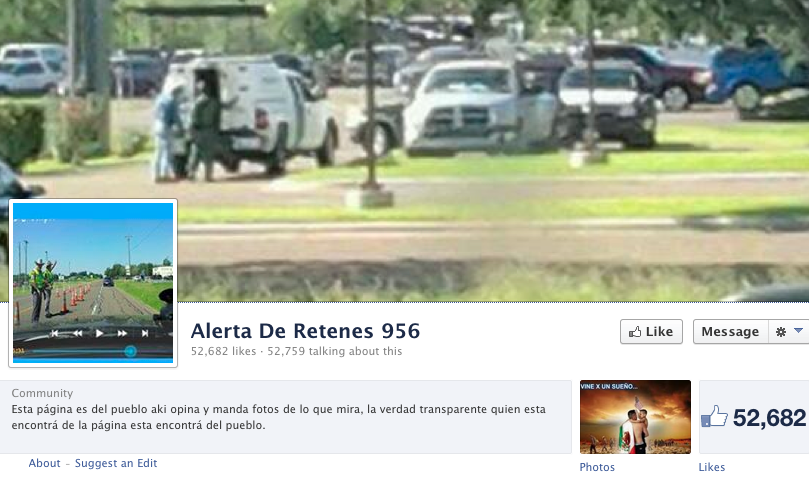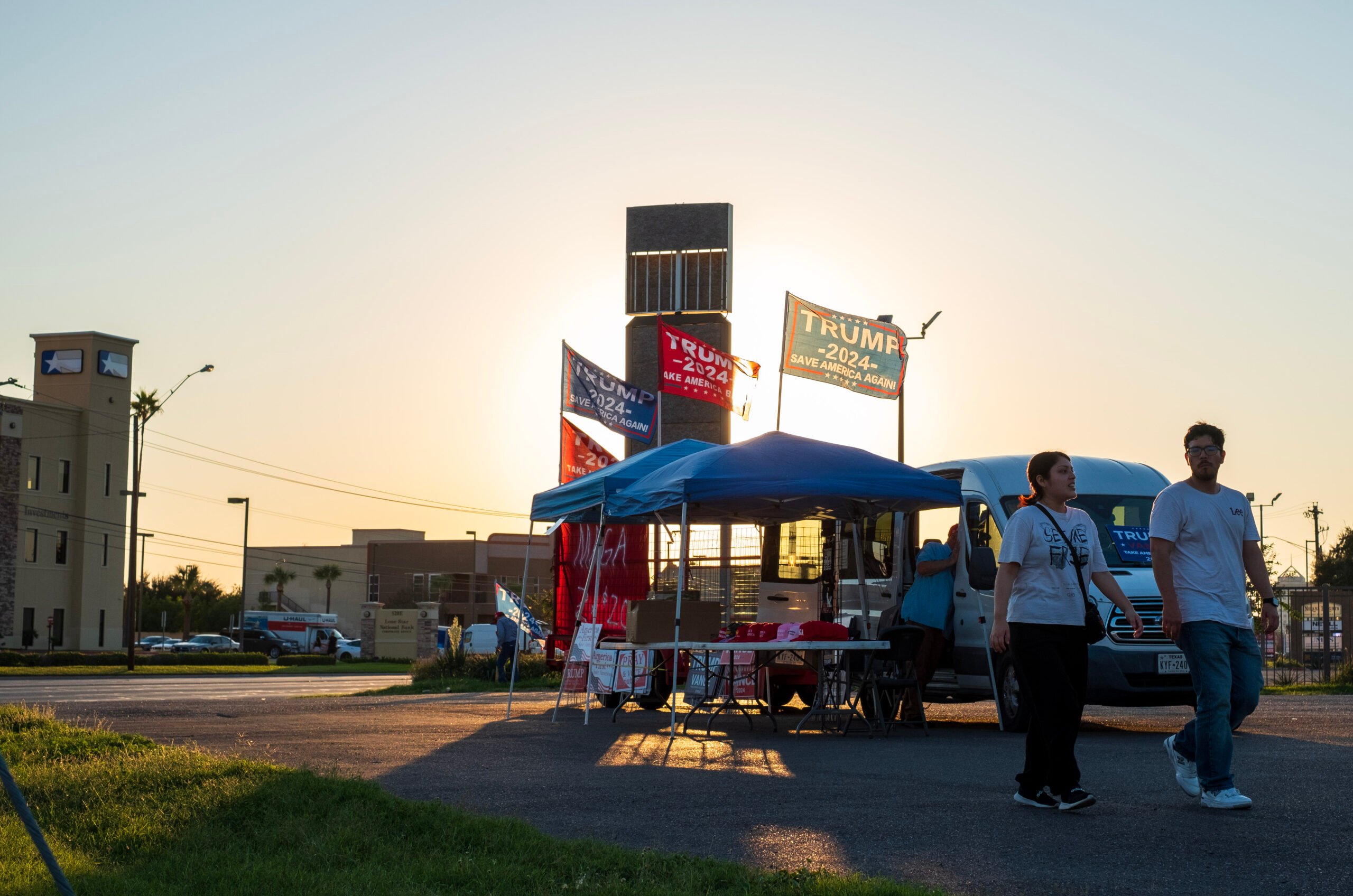
DPS Checkpoints Create Fear, Havoc in the Rio Grande Valley
The Texas Department of Public Safety was warned during a legislative hearing in 2011 that they would “run afoul of the courts” if driver’s license and insurance checkpoints were used to determine citizenship status. Now checkpoints in the Rio Grande Valley are generating fears that DPS is working with the U.S. Border Patrol to deport undocumented residents.
DPS set up temporary checkpoints around Hidalgo County last week. Immigrant families reacted almost immediately with confusion and panic, says Juanita Valdez-Cox, director of the nonprofit community organization La Unión del Pueblo Entero. “The checkpoints are supposedly to check for driver’s licenses and insurance,” she says. “But our members say they’ve seen border patrol working alongside DPS.”
Valdez-Cox said her organization received a call from a woman who was questioned by DPS at a checkpoint about how long she had been living in the United States after she was unable to produce a valid driver’s license. That woman received a citation but was not deported. DPS already regularly calls border patrol after routine traffic stops if a driver is undocumented. Valdez-Cox says her organization is still trying to verify and document whether people are being deported after being stopped at the DPS checkpoints.
One thing for certain is that the checkpoints are creating havoc in Hidalgo County. State Rep. Terry Canales (D-Edinburg) told the Monitor that his office had received more than 100 calls related to the checkpoints. A Head Start instructor told Canales that there had been an estimated 35 percent drop in attendance since the checkpoints began in the county. People have stopped going out, says Valdez-Cox. Sales at grocery stores have declined. A therapist for autistic children told Valdez-Cox that parents aren’t bringing in their children for their therapy appointments. “People are too afraid to go out,” Valdez-Cox says. “Many families here have mixed citizenship. The parents may not have documents but their children are U.S. citizens.”
To avoid the checkpoints, Valley residents are using Facebook and the app Zello, which operates like a walkie talkie on a cell phone, to report checkpoint locations. These are some of the same social media platforms used to report checkpoints and gun battles in Mexico. One Facebook page called Alertes de Retenes 956, or Checkpoint Alert 956 in English, had more than 50,000 likes in little more than a week.
In a written statement published in the Monitor, DPS Director Steve McCraw emphasized that the checkpoints are solely for the purpose of checking for driver’s licenses and insurance.
“It is important for everyone to know that these regulatory checkpoints have not and will not be used to ascertain immigration status. Moreover, reports that Border Patrol agents are present at these checkpoints are blatantly false. Such false allegations do a disservice to the public by spreading inaccurate information to their communities and unnecessarily alarming the public,” said McCraw.
Plans to conduct the DPS checkpoints along the border have been in the works since at least 2011. During the 2011 legislative session, checkpoint legislation was part of a massive homeland security bill, S.B. 9, authored by Sen. Tommy Williams (R-The Woodlands) along with other controversial provisions like allowing the agency to use GPS tracking devices without a court order and installing license plate readers in police vehicles.
McCraw and lawmakers discussed the legality of setting up the checkpoints during a March 30, 2011, hearing on S.B. 9 in the Senate Homeland Security and Transportation committee. During the hearing Sen. Jose Rodriguez (D-El Paso) asked whether it would be legal for DPS troopers to ask citizenship questions at the checkpoints.
As the former El Paso County Attorney, Rodriguez was well acquainted with the controversial checkpoints. In 2006, El Paso’s former sheriff, Leo Samaniego, faced a slew of lawsuits accusing the agency of racial profiling and civil rights violations after his department set up driver’s license and insurance checkpoints around the county. Residents said that people were being picked up by border patrol and deported after being stopped at the checkpoints.
Rob Kepple, executive director of the Texas District and County Attorneys Association, who was testifying on the legislation and sitting next to McCraw at the time, said officers asking citizenship questions would be against the law. Sen. Williams asked Kepple to elaborate.
Williams: “…so someone is pulled over and unable to produce ID or insurance and the officer says, ‘are you in the country legally?’ Is that problematic for that to happen?”
Kepple: “I think it is. I’m not sure how one question follows the other. There are a lot of other questions that could be asked to establish someone’s identity.”
At this point, El Paso District Attorney Jaime Esparza, also testifying on SB 9 and the checkpoints, jumped into the discussion.
Esparza said that there was enough case law on the books to show that DPS could legally conduct driver’s license and insurance checkpoints. But anything beyond that would be a problem, he said.
“What Mr. Kepple is saying is really important…if you’re going to ask questions to find out whether someone is in the country legally you’re going to run afoul of the authority granted to law enforcement,” Esparza said.
During the hearing, McCraw said he felt that a Supreme Court ruling had given his agency enough authority to go ahead with the checkpoints and that he didn’t really need the legislation. Ultimately, S.B. 9 didn’t pass in 2011. Ironically, the only part of the bill that did pass was legislation making it illegal for undocumented people to get a valid driver’s license.
McCraw shouldn’t be surprised by the reaction in the Rio Grande Valley. It’s already well known in the valley that if DPS troopers pull over an undocumented immigrant for even a minor traffic infraction, often it’s only a matter of time before border patrol arrives on the scene. Immigrants can’t be blamed for expecting the same at a DPS checkpoint.

